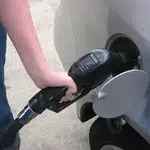
ST. PAUL, Minn. (KFGO/WCCO) – Minnesota lawmakers are hoping to do-away with a state law requiring gas stations sell their fuel at a price higher than what they paid for it.
Minnesota is among about a dozen states that still have a minimum markup law. The state’s minimum markup is currently 8 cents or 6 percent, whichever is less.
“In Minnesota, it is against the law to sell gas too cheaply,” said DFL Rep. Dan Wolgamott. “Gas retailers face legal action from the Department of Commerce if they sell gas too cheaply.”
Proponents argue that removing the law would facilitate lower gas prices and maintain protections against predatory pricing.
“There’s an argument that the bigger companies are going to lower their prices and price small retailers out of the market,” Wolgamott said. “That’s already illegal in state and federal law. What this does is it lets the market decide what prices are going to be without this artificial protectionist markup that is costing Minnesotans more money on their gas.”
Republican Sen. Jordan Rasmusson said Thursday that economists have found there’s no difference in the amount of small gas retailers in states that have minimum markup laws and states that don’t have such law.
Rasmusson believes it will open the door to lower prices at the pump for more Minnesotans.
“This is an issue of economic justice for working class Minnesotans. The minimum markup law does not apply to club stores like Costco or Sam’s Club,” Rasmusson said. “If you can afford a membership to get your gas there, it can be 20 cents cheaper or even more. We just want to make sure all Minnesotans have access to buying cheaper gas.”
Not everyone is jumping on board with the proposal. The Minnesota Service Station & Convenience Store Association wrote Thursday that they found the states with a minimum mark-up law pay less at the pump and expressed their support for maintaining such a law on the books.
“Minnesota consumers are benefitting from the ‘Minimum Mark-up Law’ of 8 cents or 6 percent, whichever is the lesser of the two amounts, with lower gas prices and by protecting small locally owned gas stations. The minimum markup law doesn’t guarantee a profit and has exceptions like coupons that allow below cost sales. The statute protects against predatory pricing that drives out small retailers and then allows large companies to raise prices.”
Rasmusson said there’s a clear reason petroleum companies want the law to remain intact.
“Every industry would love to have a minimum markup law. If you’re an attorney, you’d love to have a minimum price set for all attorneys that could be charged for every attorney in the state. That’s why they’re opposing this. I think it’s important we put consumers first, that we listen to the experts when it comes to antitrust policy who say these laws are antiquated and actually harm consumers in the process.”




Comments